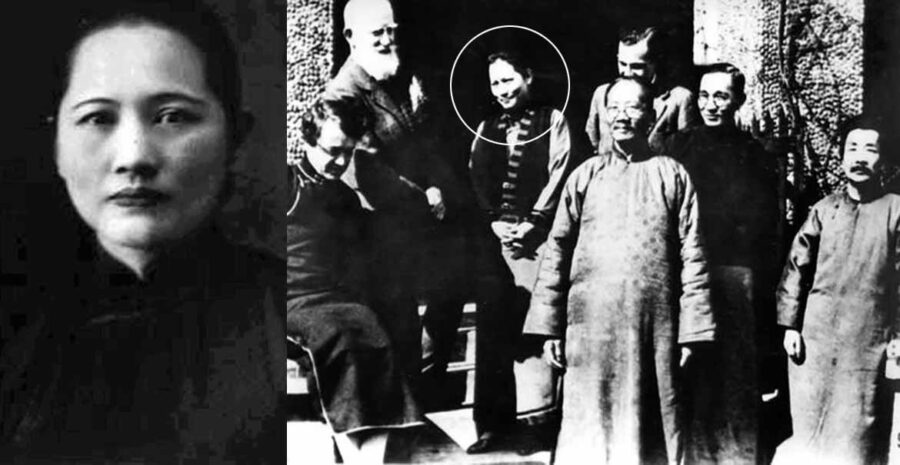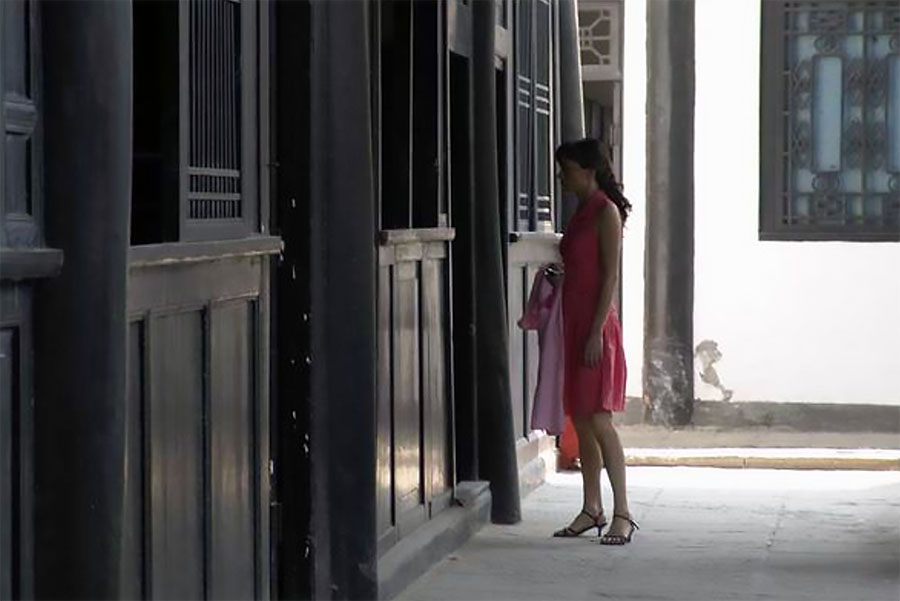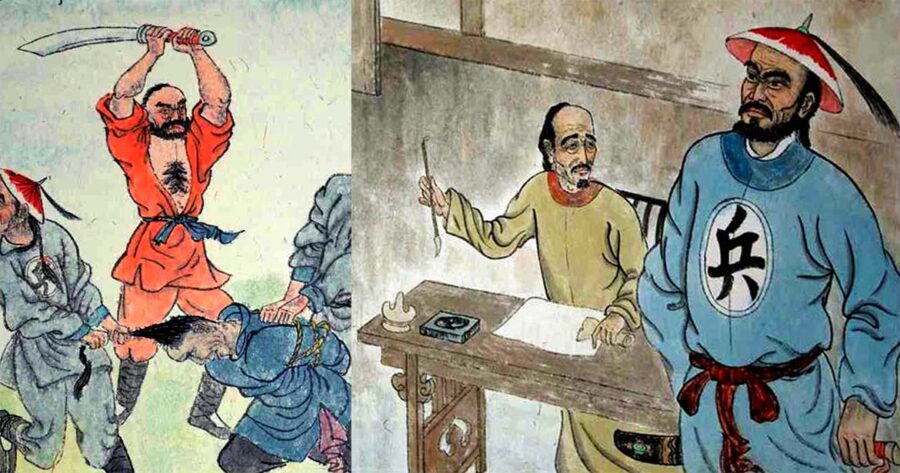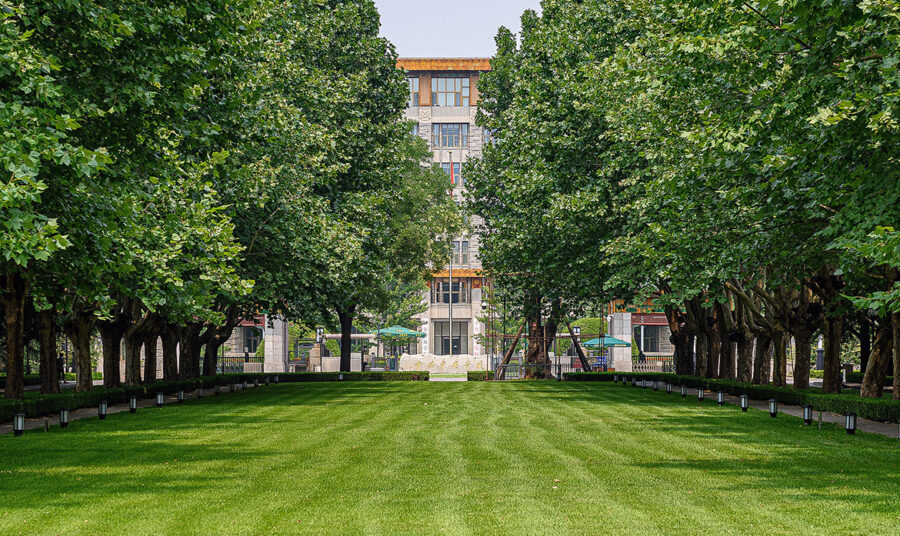Karl Wang is a Swede who has lived in China for several decades. He describes how he sees the meritocracy of China, which has its roots in Soong Ching-ling and her creation of a revolutionary popular movement that was the beginning of the emergence of modern China.
By Karl Wang, Chongqing (in Swedish)
We must first remember that China may be a State, but in reality, it is not a nation, but a union of many smaller nations made up of peoples with different cultures and histories.
It is said that there are around 2000 ethnicities, or peoples, with associated cultures in China, speaking around 1500 languages. There are about 30 writing systems in common use, and today these are organized into 56 minorities, with affiliations often decided on historical grounds.
Having a single uniform political system with national parties and centrally controlled politicians, like Sweden, simply does not work. China learned that lesson the hard way in 1913-1949 when China made several attempts to introduce a Western model of democracy.
It was a disaster, with repeated civil wars and disasters costing some 70 million lives. A social system based on national parties and elected politicians simply does not work, as China learned bitterly between the fall of the empire in 1910 and the rise of Mao Zedong in 1949.
Meritocracy China – There are no ’politicians’ in China
There are no politicians in the Western sense in China, nor are there any political parties in the Western sense. So the talk of a ’one-party state’ is nonsense.
China is administered (not governed) by officials who take direction and directives from the grassroots level. China is governed by civil servants. There are neither politicians nor political parties as in a Western ”democracy”.
Thus, what the West insists on calling ”politicians” in China are officials who are elected or appointed on merit rather than political views or ideologies. There are also no parties in the Western sense, what the West calls ”parties” are in reality better called ”popular movements”.
There are nine major popular movements in China of significance, but in reality, there are more. The main task of these movements is to collect and channel the popular will to decision-makers at all levels.
The highest decision-making body is the National Congress, China’s parliament, where representatives from all of China’s people gather at least once a year. The National Congress decides, and then delegates well-defined tasks back to the various popular movements, or ’parties’.

A woman started China’s first political ’party movement’
The largest is what the West calls the ”Communist Party”, which was founded in 1921 on the initiative of Soong Ching-ling, (1893-1981), as a ”revolutionary people’s movement” and has not changed to this day. It is not, and has never been, a political party in any form in the Western sense.
Soong Ching-ling was later appointed ”Honorary President of the People’s Republic of China”. It was in fact she who invisibly administered China for so many years. Mao Zedong was a brilliant populist leader, but a terrible administrator.
The Communist Party today has nothing to do with either communism or party activity, as the Swedes perceive it. Then there are several peripheral organizations with different tasks. Among other things for coordination.
”The Communist Party” is a Western term that has become a kind of idiom. In Chinese, when the characters are interpreted, it’s more likely to be called the ’Everyman Movement’. 共产党, gòngchǎndǎng.
The framework of the meritocracy China is centrally controlled and, for practical reasons, it must leave much room for local variations. The economy is fully decentralized.
How to make a career in the civil service system?
Western political democracies have unlimited power for individuals. A system where a person with no education, training or experience, perhaps a person with no intelligence or ability, a person with a character that is utterly corrupt or dangerous, can become a national leader and totalitarian ruler. There are many examples of this.
China’s social system is meritocratic where education, experience and skills are required to even run for a position.
The first test to pass is China’s Gaokao 高考 or college entrance exam, a system of annual university entrance exams taken by around 10 million Chinese hopefuls each year. These tests are rigorous, cover many topics and take three days.
The tests require broad understanding, deep knowledge and high intelligence to do well. These tests are entirely merit-based and favoritism is impossible. Students who get the highest scores in these tests are in the top 1% of a pool of 1.5 billion people.
Without a university education, the path is closed to almost all advancement and responsibility within the social system.
Most people have more than one academic qualification. An engineering degree is the most meritorious, and the most difficult, with good credentials in basic subjects such as mainly mathematics and physics.
Today, we often hear that China’s academic graduates have difficulty finding the right job. Engineers, on the other hand, have no difficulties whatsoever. There are plenty of jobs in China, but young people don’t always think that the jobs on offer are not ’right’. They have become very picky.
The hopefuls also have to pass a civil service exam later on. This exam has deep roots in China’s long history. The civil service exam was introduced during the Han Dynasty (206 BC-220 AD). Towards the end of the Han Dynasty, more than 30,000 students per year took the civil service exam.

China’s only female emperor, Wu Zetian (624 – 705), is famous for re-creating it in a form that is still partly used today. She weeded out nepotism and corruption to produce the best officials. She is known to have been one of China’s most capable emperors, but she was also incredibly cruel to opponents who tried to sabotage her.
The civil service exam lasted as long as 72 hours and required a great depth and breadth of general knowledge to pass. Those who aspired were given a bare room, desk and writing implements, a personal guard, to write their thesis. Caught cheaters were executed in ancient China.

In the city of Langzhong in western China, everything has been preserved where these exams once took place. Anyone could come, pay a fee, be searched and those whose thesis passed could look forward to a brilliant career.
A visit to this historic city is highly recommended. There is much to see and experience. Very little has changed over the years.
The modern civil service exam
It was an extraordinarily fair system because no formal qualifications were required to take the exam itself. Almost anyone, even from the least educated family and the poorest peasant, could take the exam and if they did well enough, they could get a job in the civil service and potentially rise to the highest managerial positions and offices directly under the emperor.
The modern public examination system evolved from the imperial one and today millions of people take these exams every year. They are extremely difficult. Out of perhaps two million candidates, only about 10,000 will pass, equivalent to only 0.5%.
This exam is just the beginning of a 30 to 40-year career to build the knowledge and experience needed to become a member of China’s central government. The top 1% of this small group will then form the Politburo, while one of these few can become the President of China.
A small portion of these people who have passed the civil service exams will become senior officials as civil servants in China’s national government. They have entered a lifelong career in a formidable meritocracy where promotion and responsibility can only be obtained through proven ability and knowledge.
Individuals in China’s social system are better qualified than those in most other countries. In Sweden, it is not even necessary to have completed primary school or to be literate. The difference is so great that comparisons are largely meaningless.
Some will claim that family connections in China can provide a government job for one person in a family, a claim that may be true for the lowest positions at the local level, although it is extremely difficult beyond that and impossible at the national level.
No contacts, gifts or donations will open the door to any senior position, or lead to the pinnacle of decision-making power, positions reserved for people with deep experience and proven ability. Nor does family wealth or influence play any role in these appointments.
Of China’s highest governing body, the 25-member Politburo, only seven came from any background of wealth or power. The rest, including China’s president and prime minister, came from backgrounds that offered no special advantages, and they rose to the top based solely on merit.
In the larger Central Committee, currently 205 full members and 171 deputies, those from privileged backgrounds are even scarcer. References in the Western media to China’s ”princelings” are just an offensive and ignorant smear.
There is a difference with the West here of huge importance that is never discussed in the West, in our Western democracies we have ”politicians” and ”officials”, which are two completely different species.
China has nothing that we could call ”politicians”, in fact. In reality, all Chinese government officials are what we would call ”civil servants”, including the President. They are all simply knowledgeable managers and decision-makers at different levels.
In the West, politicians usually do not have any actual knowledge in the areas they exercise power over, and they have to refer to the officials for knowledge. In China, it is the opposite, where ministers and policy makers are the real reservoir of knowledge. This is pretty much the same as we would find in any company.

The University of the Knowledge elite
It is not widely known in China, let alone the West, that hidden in Beijing is a university institution that is almost certainly the best in the world.
This Central Party University is called ”the most mysterious school in China”, with a list of both students and faculty that is an order of magnitude larger than universities like Harvard, Cambridge or the Sorbonne. No donation, regardless of size, or contact will gain you admission.
Originally founded in 1933, the university’s purpose is to train and develop those individuals who have passed the civil service exams to prepare them both in their career development and in the responsibility of governing one of the world’s most populous states.
The 100-hectare leafy campus is extremely quiet and here, unlike any other university in China, there are no bicycles, instead, the roads outside the school buildings are lined with black Audis, BMWs or Mercedes. The entrances are under armed guard 24 hours a day, seven days a week for security. Aspiring governors and ministers, young and middle-aged civil servants, and sometimes the country’s top leaders, study here.
The school invites the world’s most famous experts from any country on any subject, including military affairs. Sometimes leaders from other countries and other high-level foreign dignitaries. This is to enable students to develop a wide range of knowledge and skills and to gain a better understanding of different cultures, values and political systems.
The cornerstone of the school’s education policy is that everything is welcome on the agenda. There are no forbidden topics, and even reactionary, revolutionary or simply crazy positions are discussed, analyzed and debated to their resolution.
Nothing like this system exists in the West. Studies at the Central Party University are usually repetitive for up to a year at a time, to expand and build knowledge and understanding. Training is interspersed with employment and assignments at local, provincial and national levels, as well as with assignments in various state-owned commercial enterprises, both domestic and foreign.
A person returns to the university several times for further education and training.
In China’s system, leaders and officials are evaluated by their superiors, not by the unqualified and uninformed ”voters” as in Western democracies. ”Voters” lack the insight, tools and knowledge to make a meaningful evaluation of those in power, who are appointed by the parties, not the voters. Moreover, they are appointed based on loyalty to the party leadership and its ideology, not competence, knowledge and merit.
As an example of how it works
A new governor in China sought out the poorest place in the province and set up a study team to look for opportunities for progress and community development. His team discovered that the local climate and soil conditions were ideal for the cultivation of certain Chinese herbs, and the project immediately set about procuring plant materials, establishing supply chains and marketing methods, building infrastructure and implementing the necessary training programs for farmers.
Within five years, all residents in the area owned their own new homes and more than half drove BMWs. I have seen this many times in many different forms across China; Xinjiang is one example.
Ignorance of China is deliberate and damaging to the West
In China, it is impossible to make a career without extreme merit. Once inside the system, education in China is never-ending. The system is widely known within China and it fits well with Chinese culture and tradition, and is consistent with the Chinese psyche in China’s Confucian approach and the people’s desire for a good social order with peace and harmony.
The West does not understand this, if they even try, and inevitably draws incorrect and often absurd conclusions about China, its people, government and advanced democratic social system.
Few Westerners have bothered to learn even the simple basics about China’s form of government, preferring instead to parrot the nonsense that China is a ”dictatorship” or, a ”tyrannical regime”, or ”oppressive regime” with no ”human rights”. Of course, this is not so.
The level of Western ideological blindness and willful ignorance is simply frightening and dangerous. It is now clearly leading to the decline of the West. China is advancing, developing and taking 86% of the rest of the world with it.
The West, i.e. the US and the EU, 4% and 3% of the world respectively, are increasingly isolated while the propaganda via even more ignorant journalists and state-controlled propaganda media is blaring at full volume, drowning out all sense, and reason, and truth, facts and knowledge.
By Karl Wang
More reading
- Wikipedia: History of political parties in China
- Wikipedia: List of political parties in China
- Wikipedia: Wu Zetian (the first and only female emperor in Chinese history)
- The Unz Review: Democracy, the Most Dangerous Religion: Part 3 – Choosing Government Leaders

